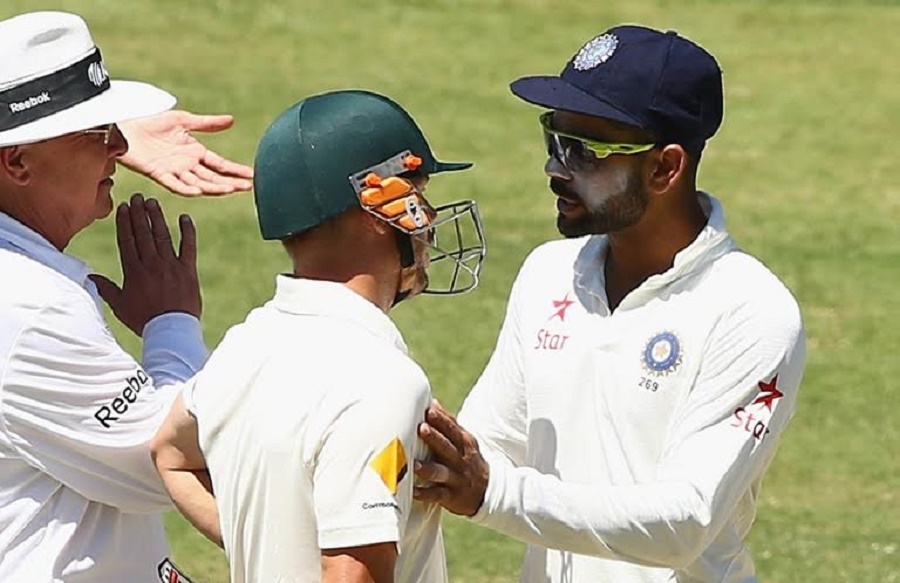MCC’s World Cricket Committee believes umpires should have power to eject players from the field
A recommendation handed down by the MCC World Cricket Committee could lead to umpires having the power to eject players from a game for serious disciplinary breaches.
While the red card is synonymous with football and also appears in a number of other sports, cricket could be about to head down the same path – as early as next year.
The Committee, which includes Australian legend Ricky Ponting among other cricket luminaries and is chaired by former England captain Mike Brearley, met in Mumbai on December 6-7 and arrived at a number of recommendations, with the idea that a player could be effectively ‘sent off’ now subject to approval by the main MCC Committee.
If the recommendation is accepted, the new code of the Laws of Cricket will include a stipulation that umpires can remove a player from the field for the following:
– Threatening an umpire,
– Physically assaulting another player, umpire, official or spectator;
– Any other act of violence on the field of play.
The World Cricket committee believes that the game must now include a mechanism to deal with the worst disciplinary offences during the match, and not subsequent to it as is presently the case.
If approved, the ability to send a player off would therefore come into effect at all levels of the game from October 1, 2017.
The committee debated sanctions for lesser offences – including run penalties and sin bins – but did not believe anything should be introduced to the Laws, where it would be harder to achieve consistency of application around the world.
The World Cricket committee cited the fact that cricket is one of few sports that doesn’t issue ‘in-match’ punishments for poor behaviour as a fundamental reason for the ‘send-off’ concept being introduced.
While a captain possesses the power to ask his player to leave the field, the umpires do not.
In MCC’s global consultation of cricket officials and administrators in 2015, an overwhelming majority of respondents supported the introduction of a system that gave more ‘in-match’ power to the umpires to deal with poor behaviour.

















